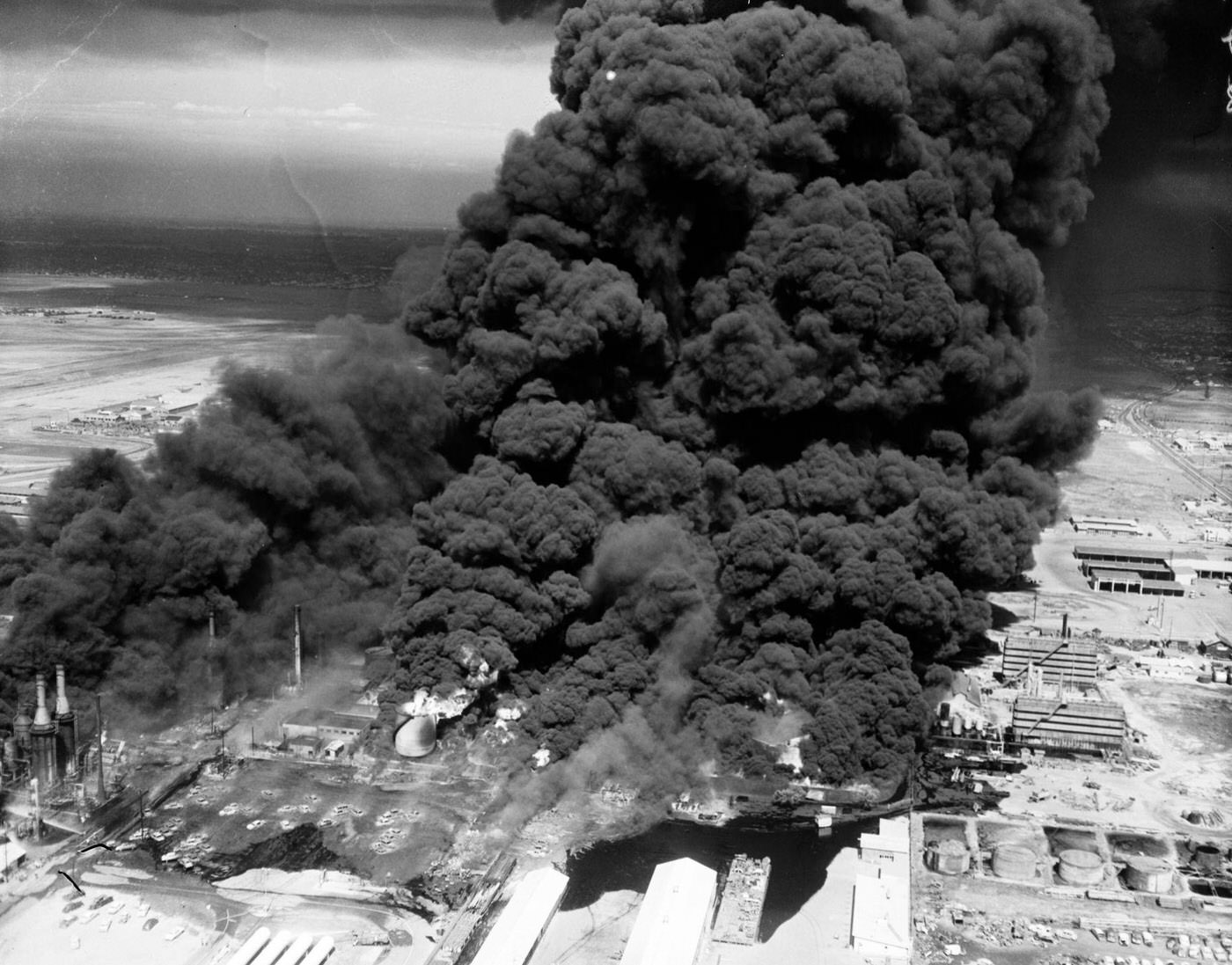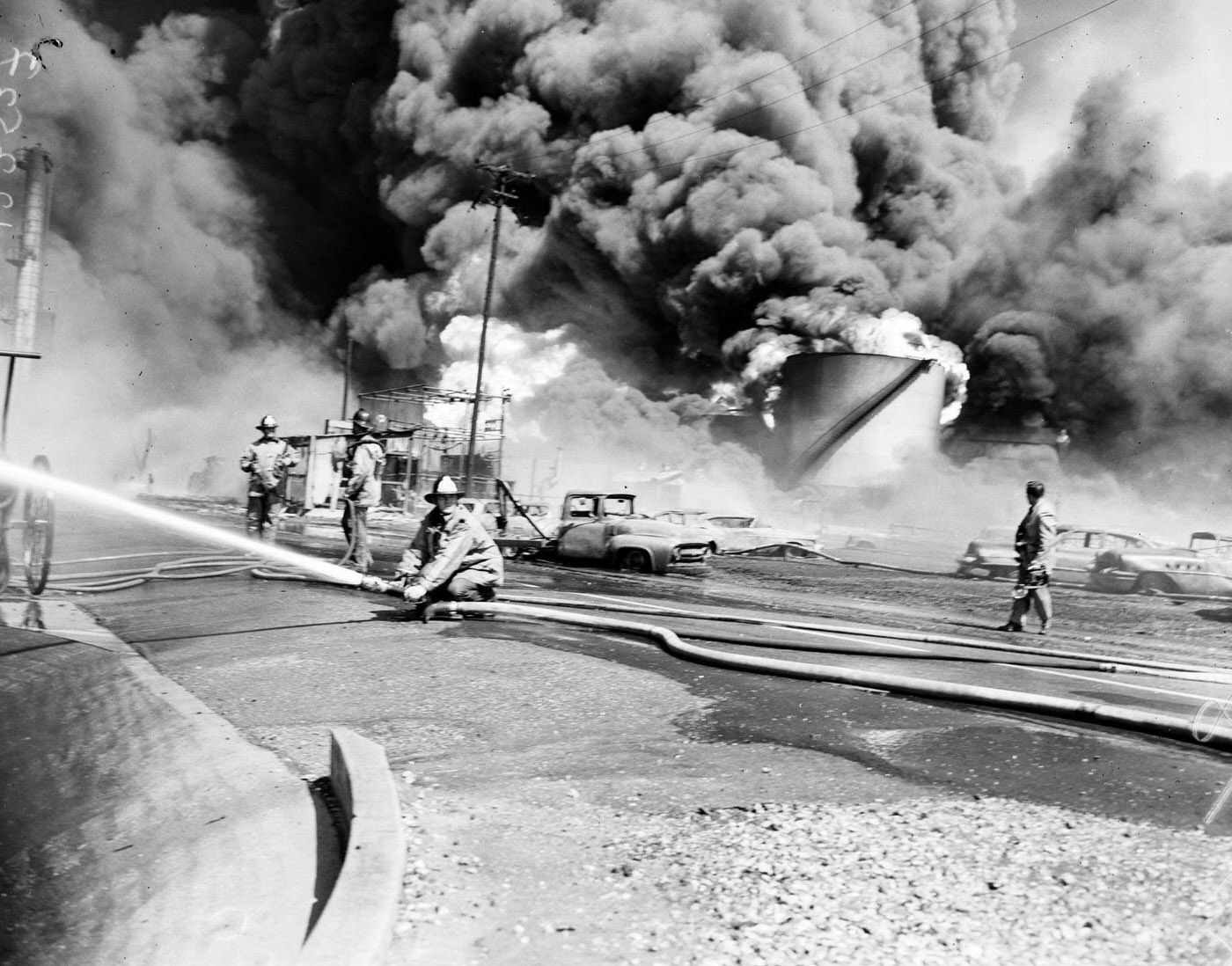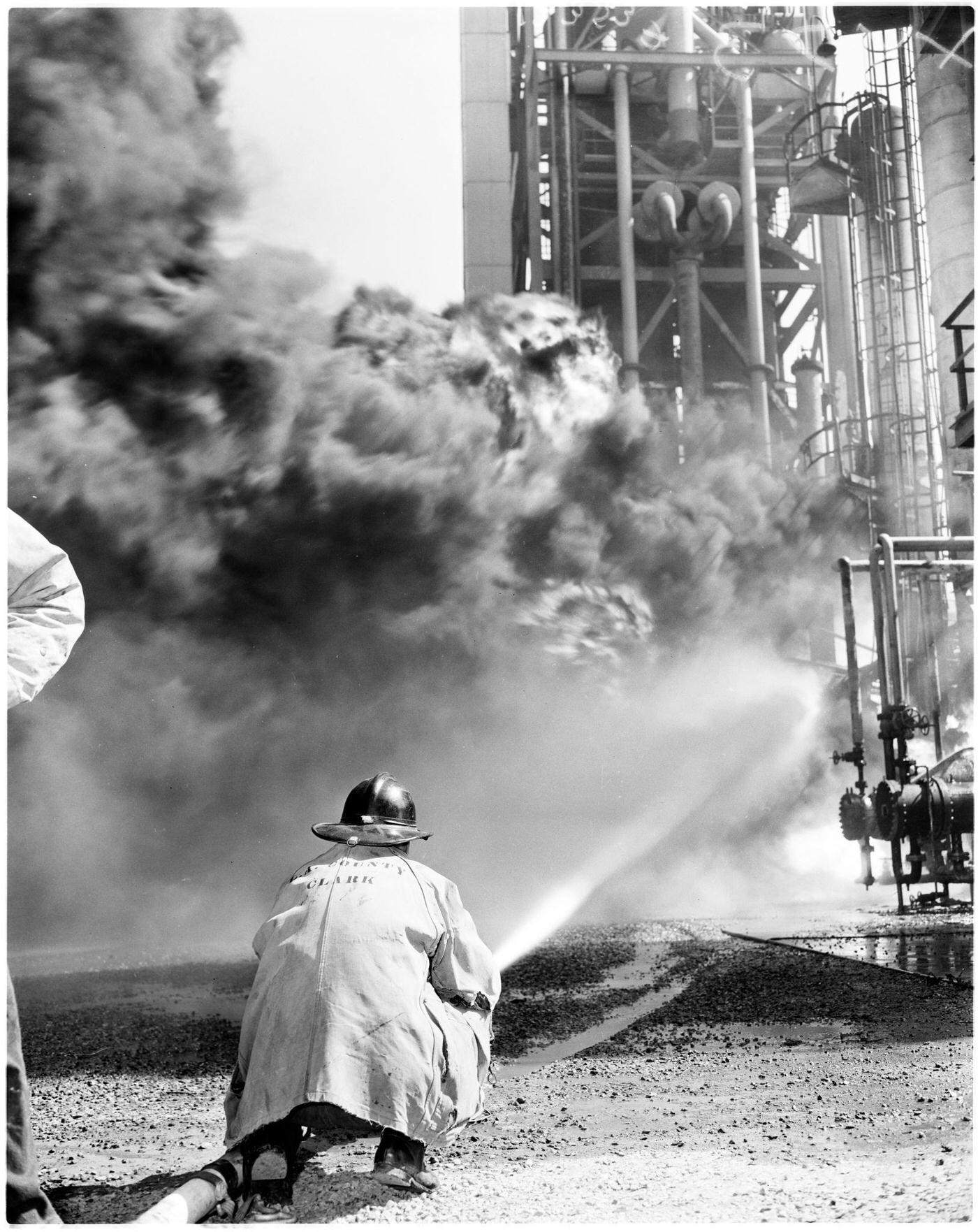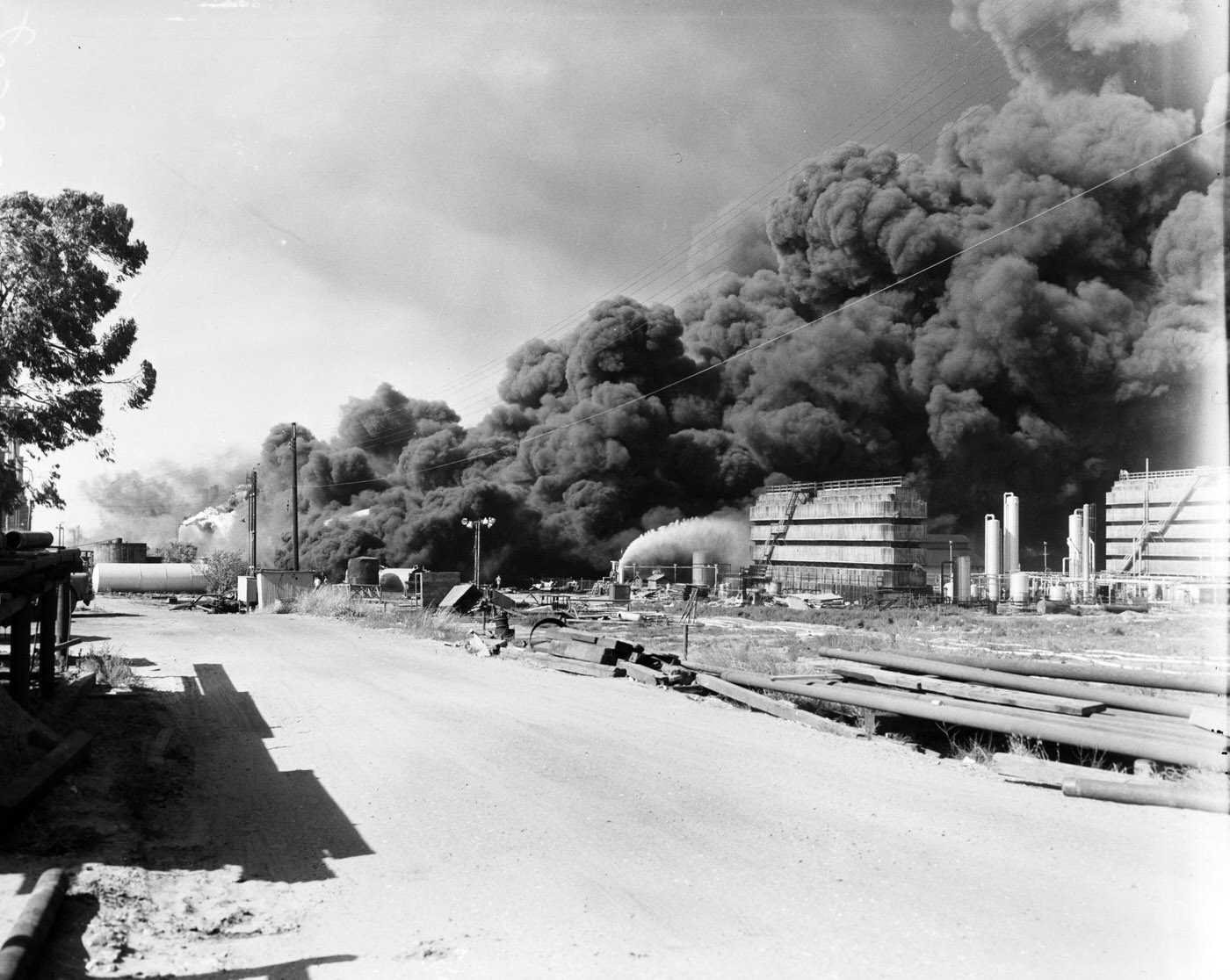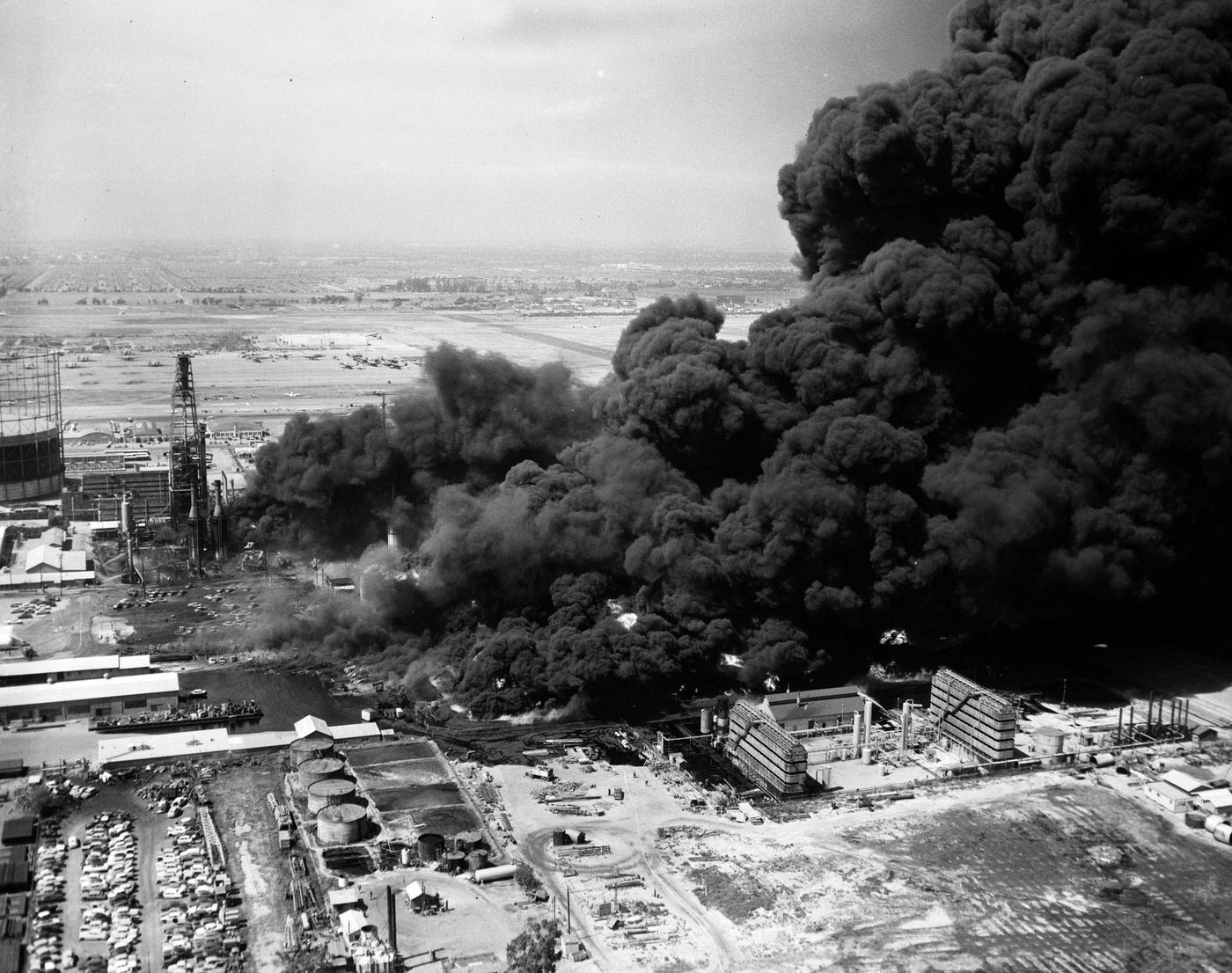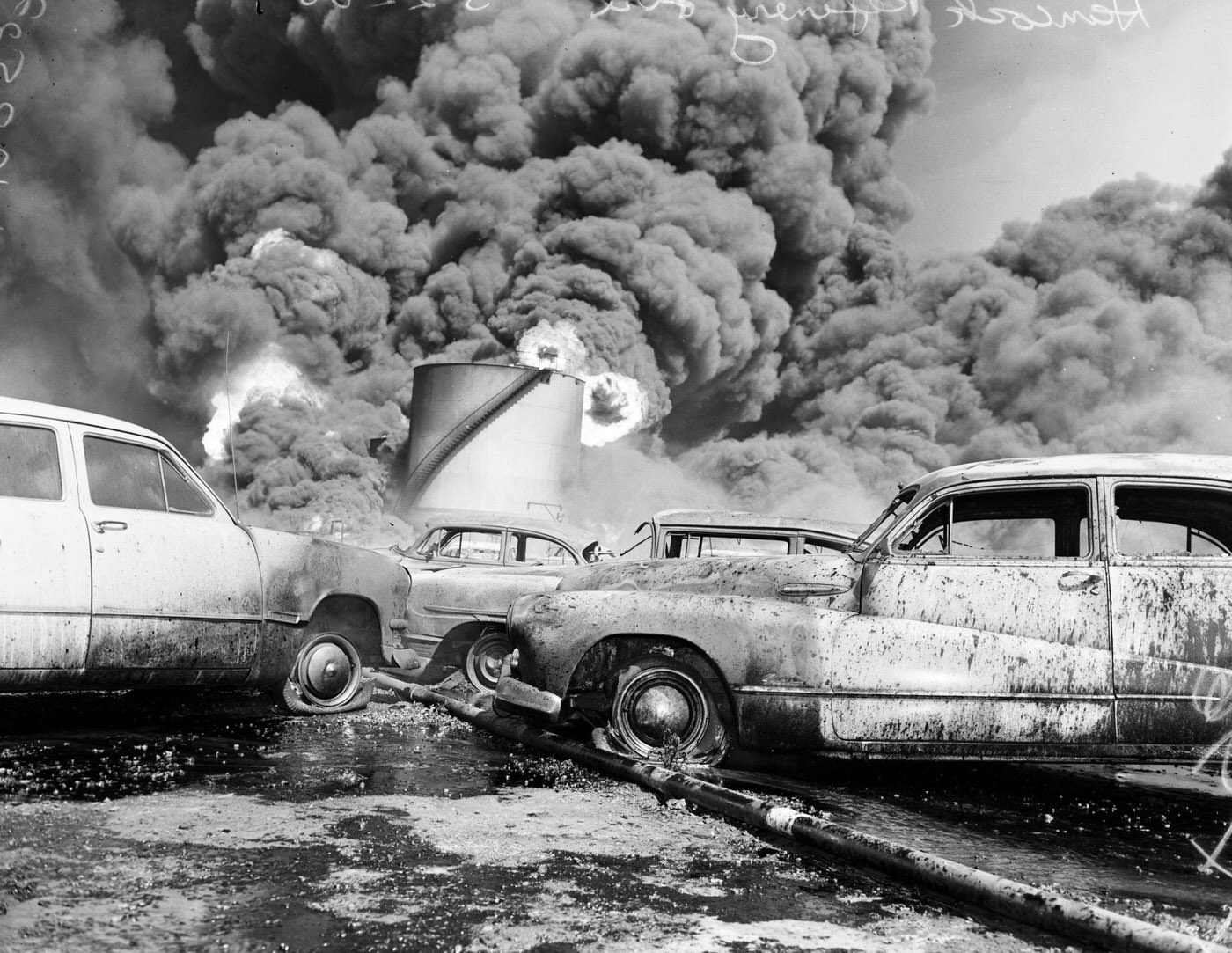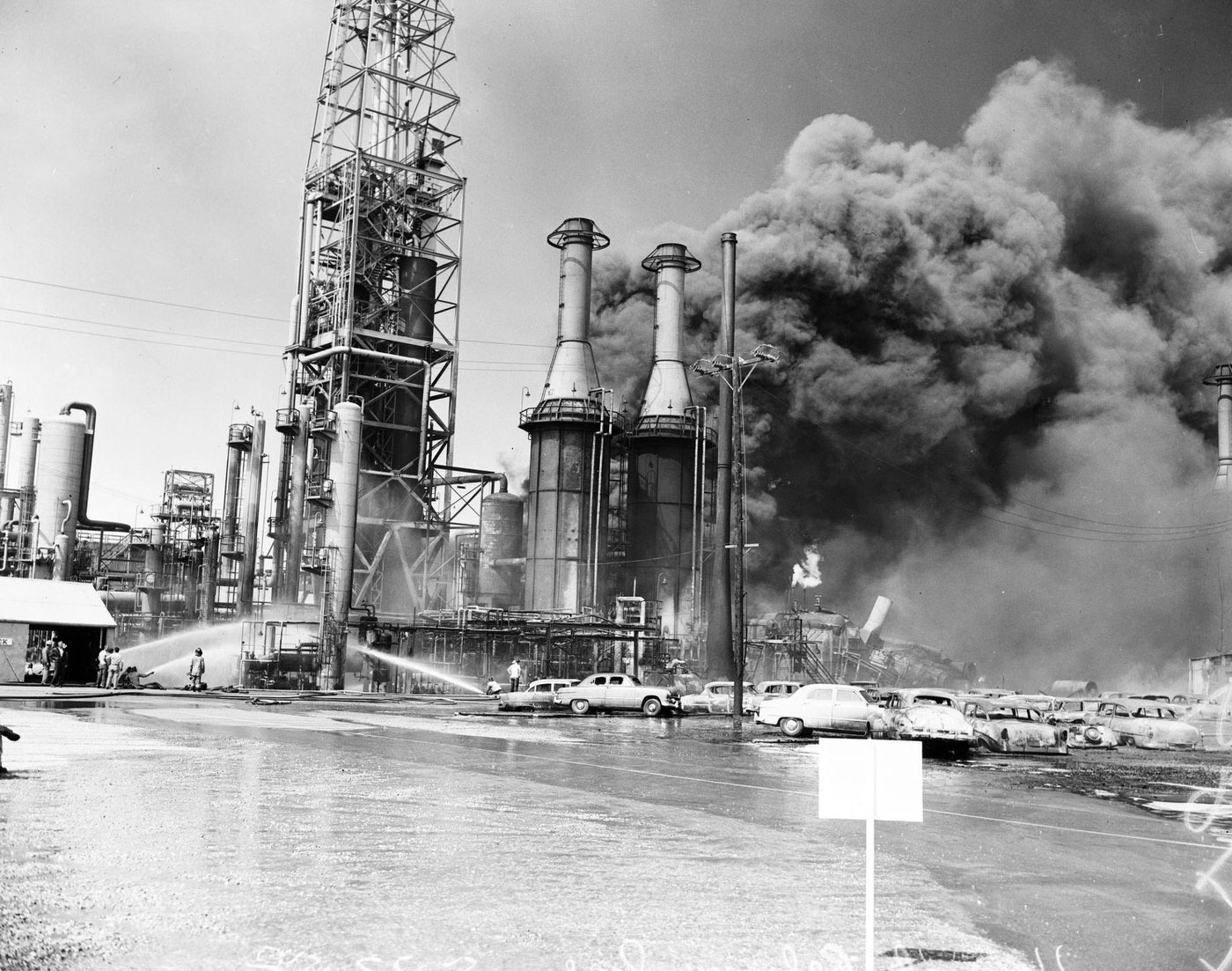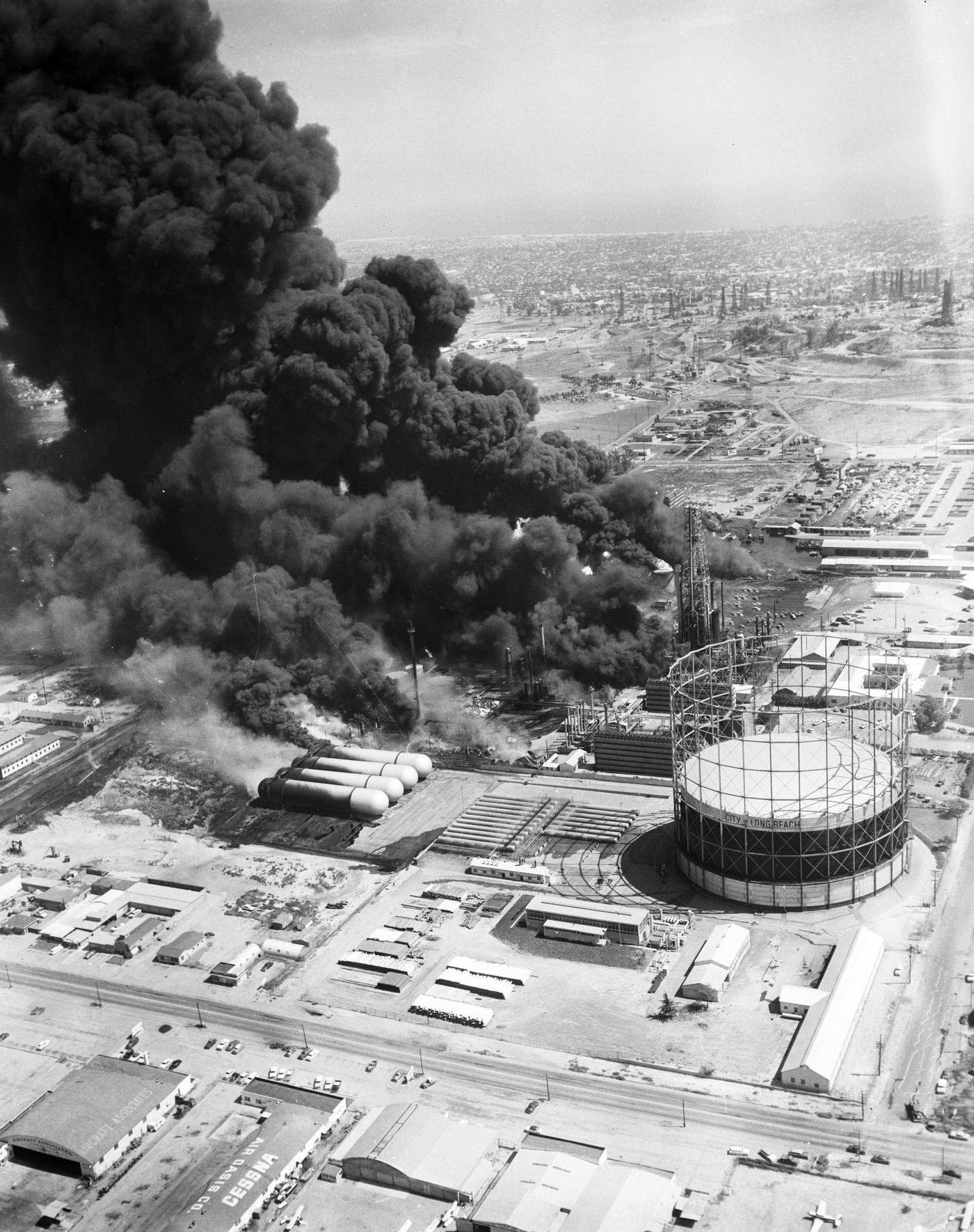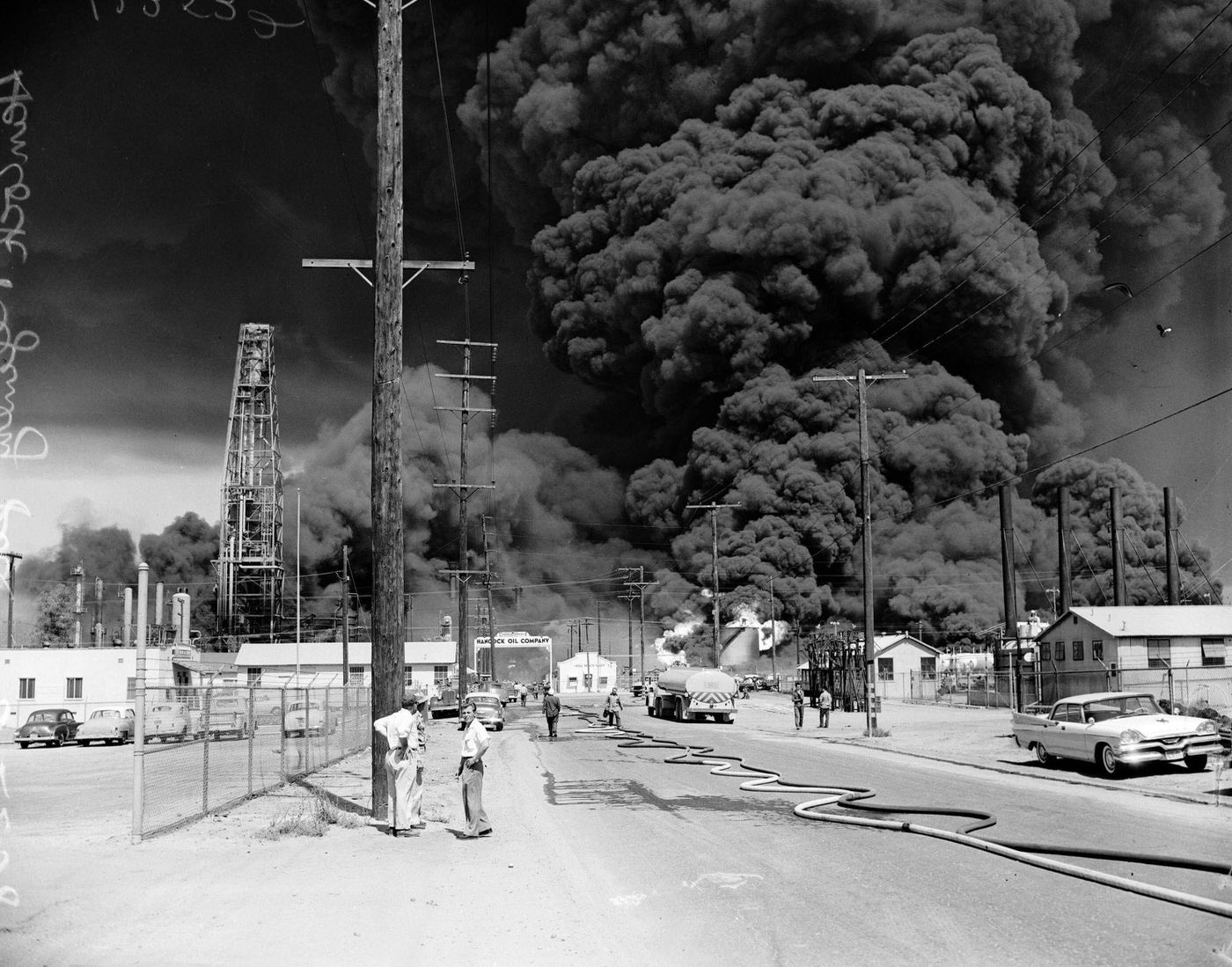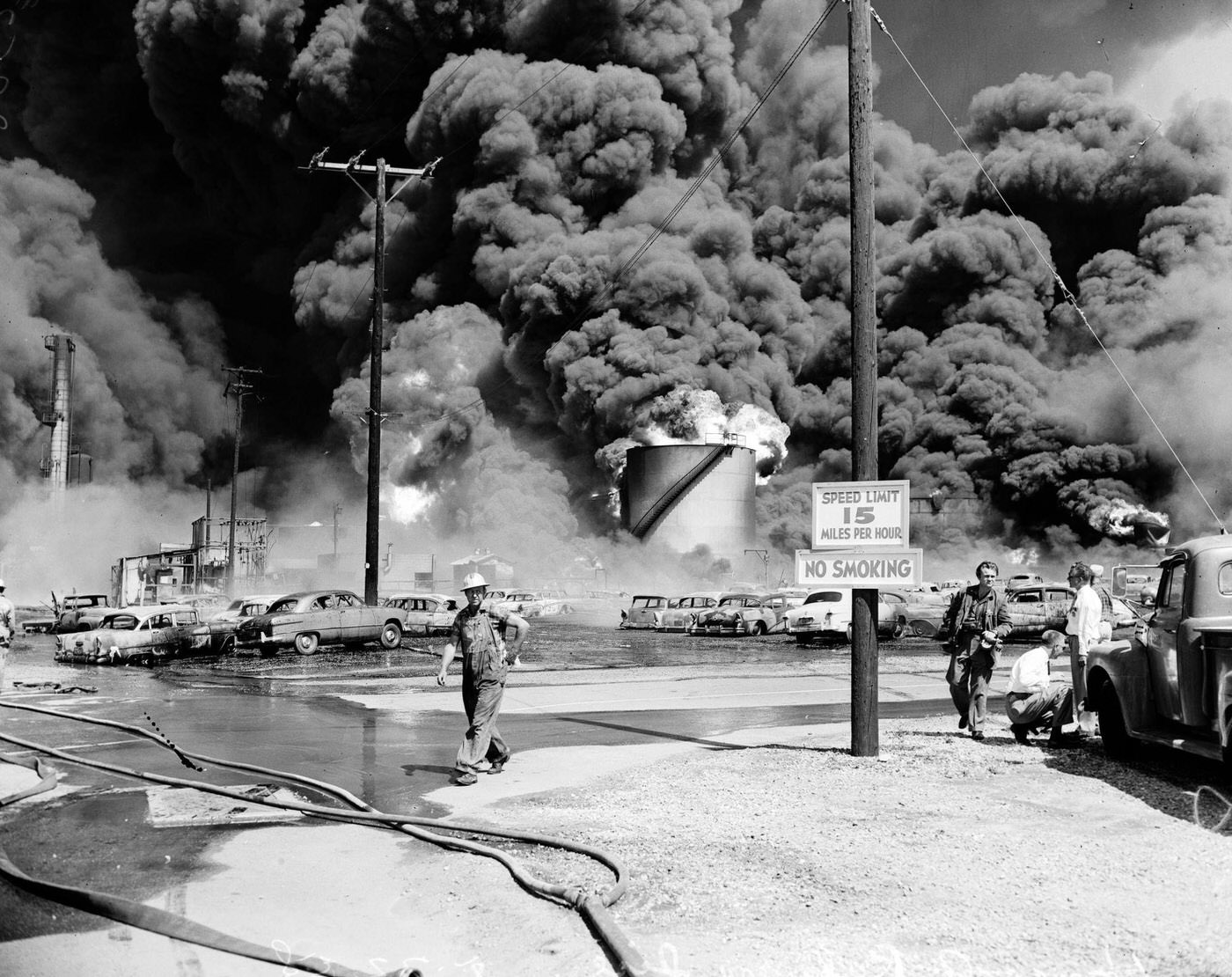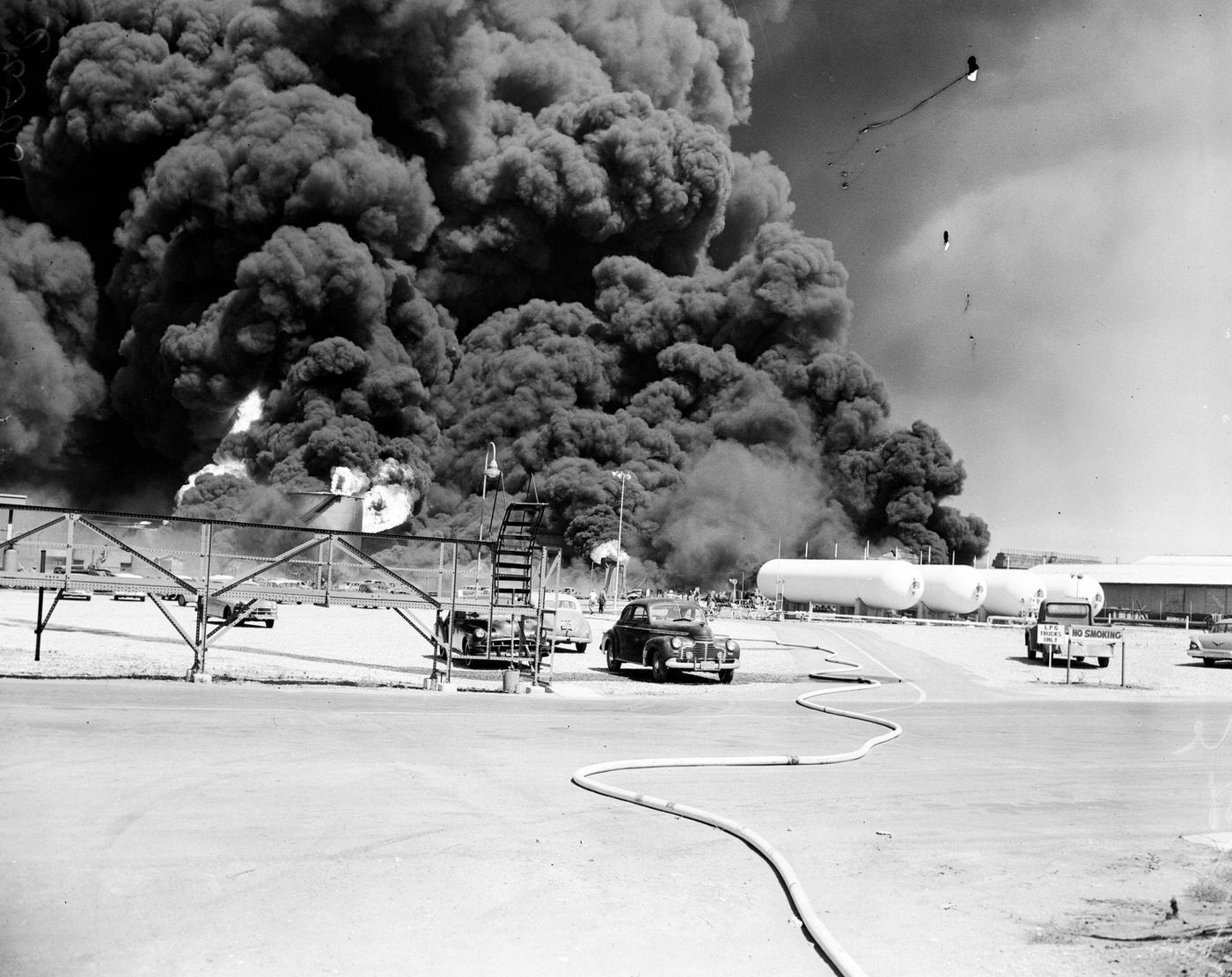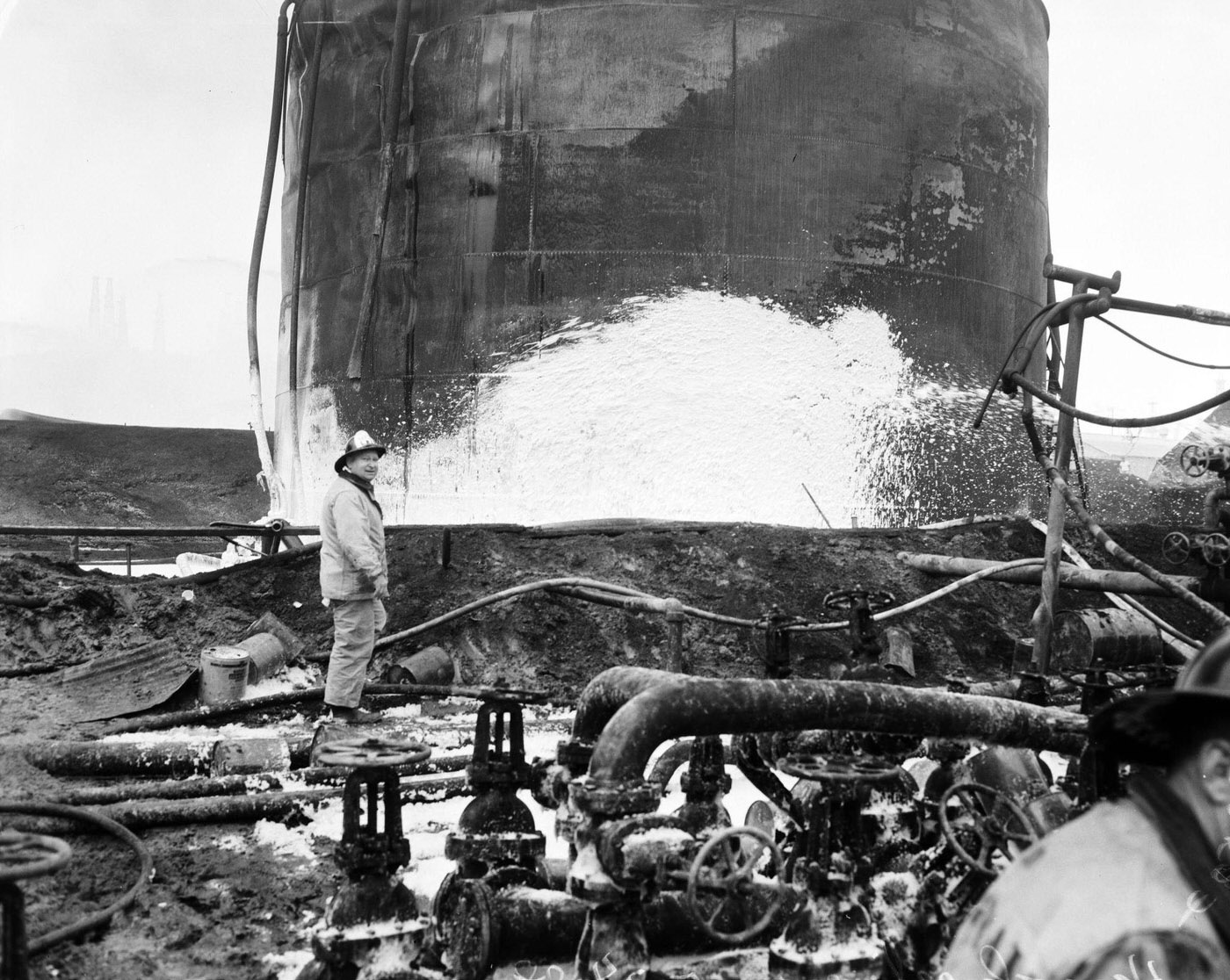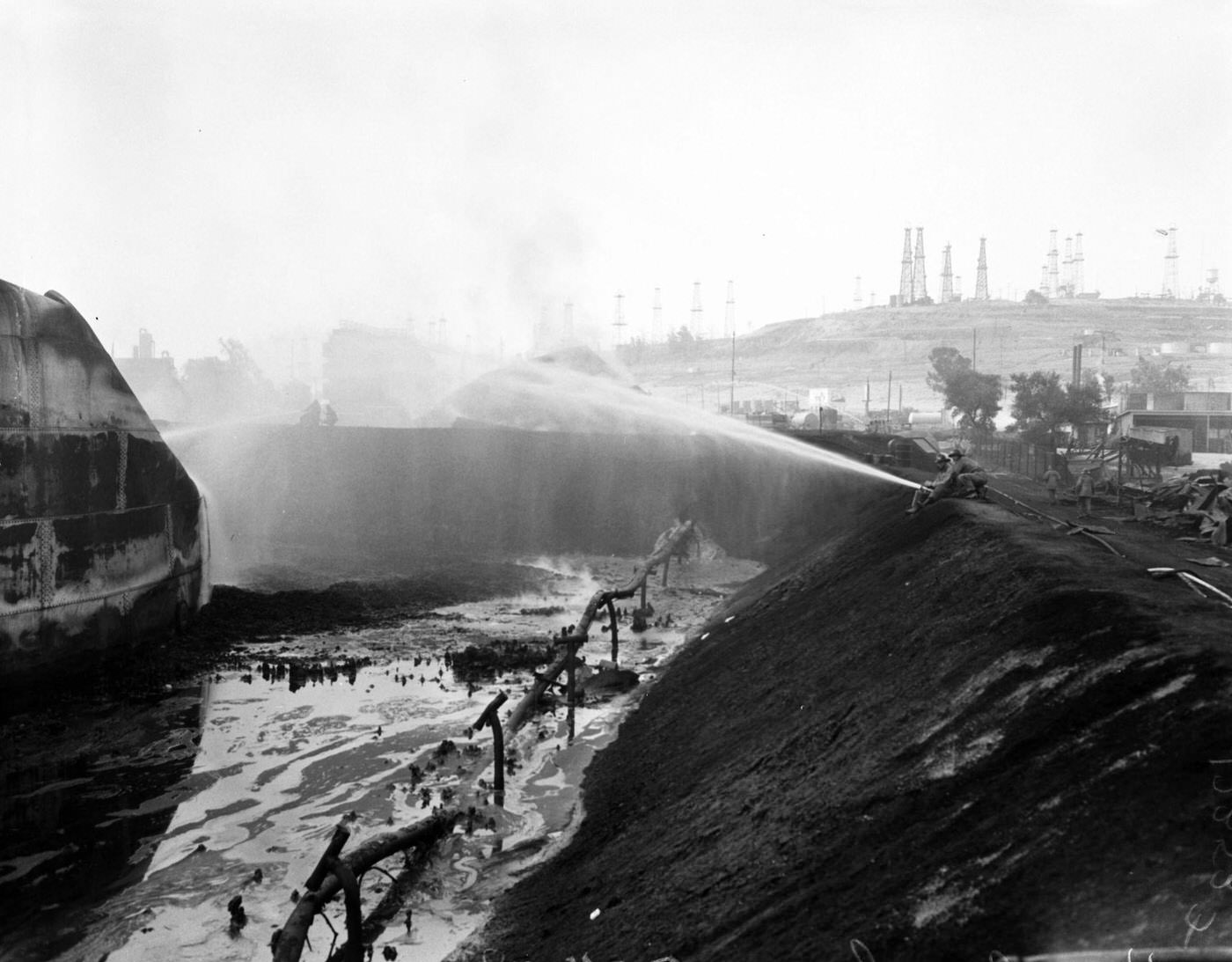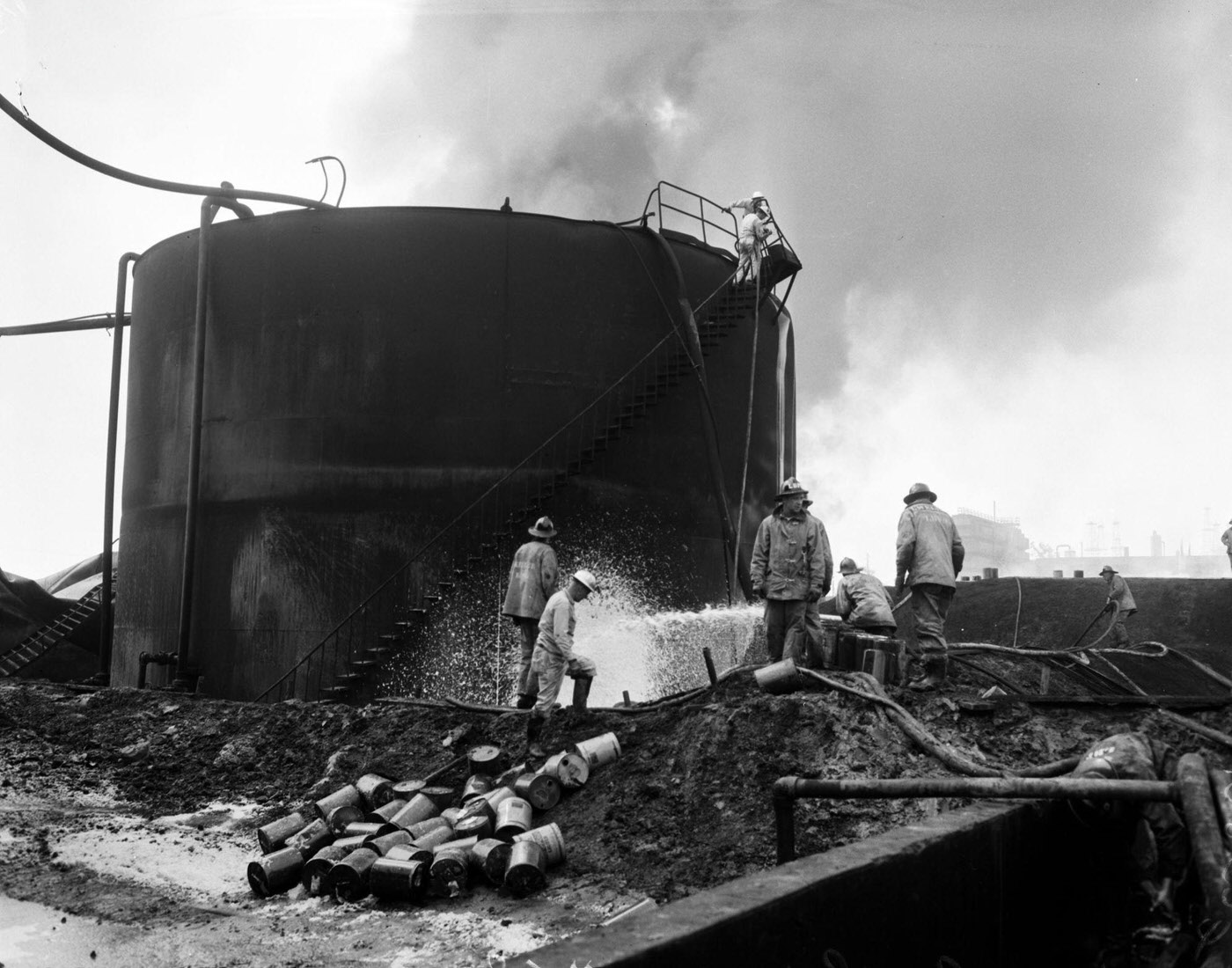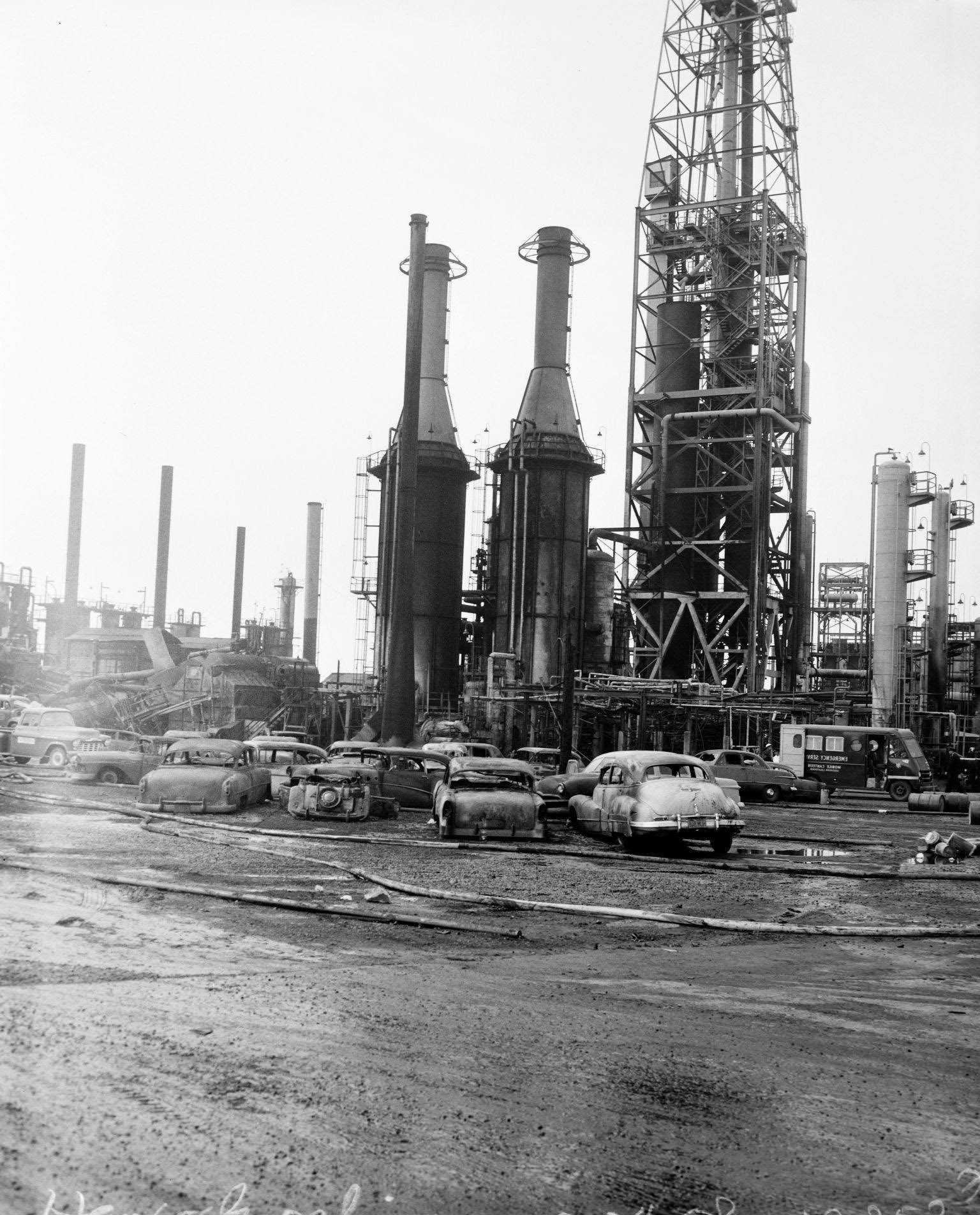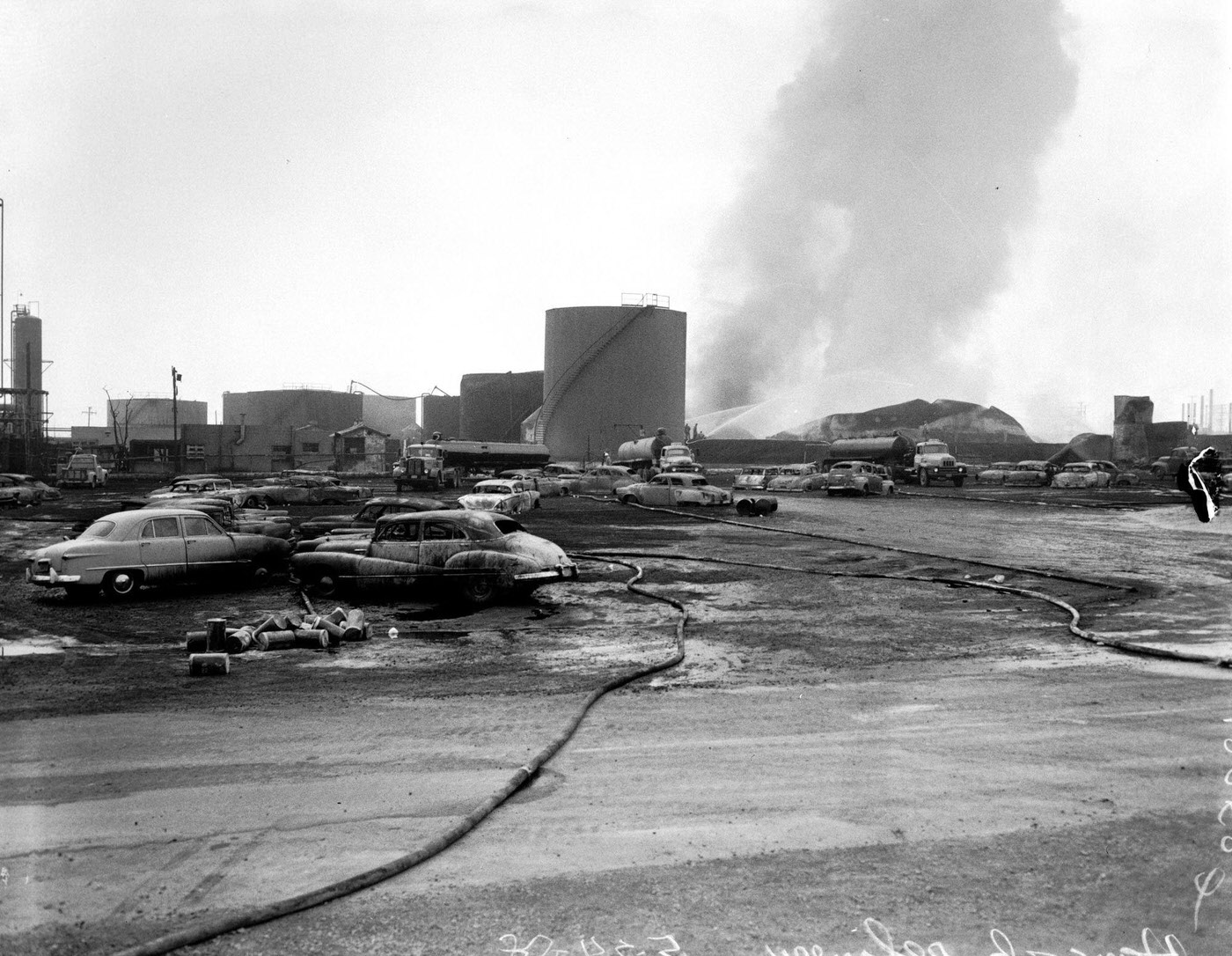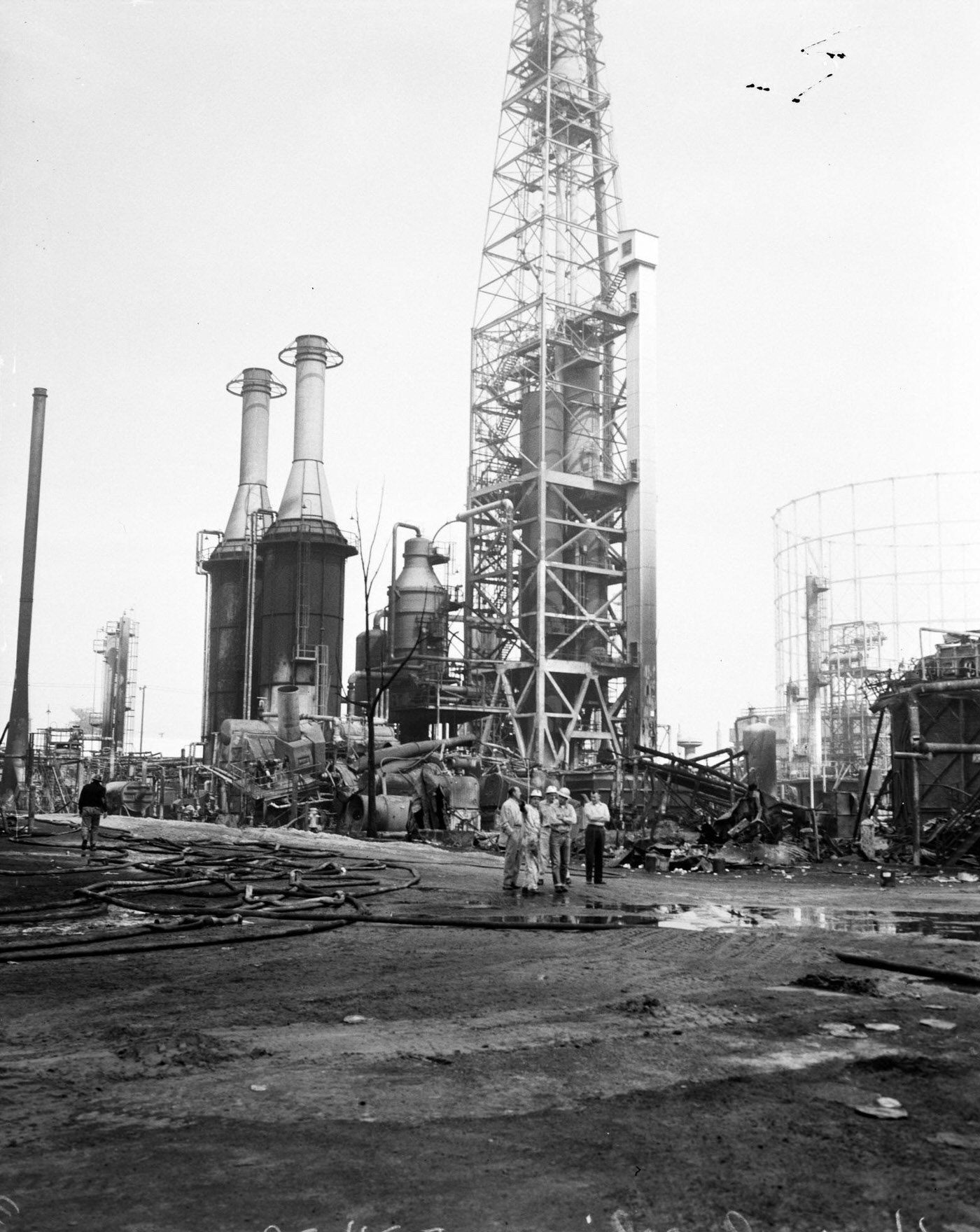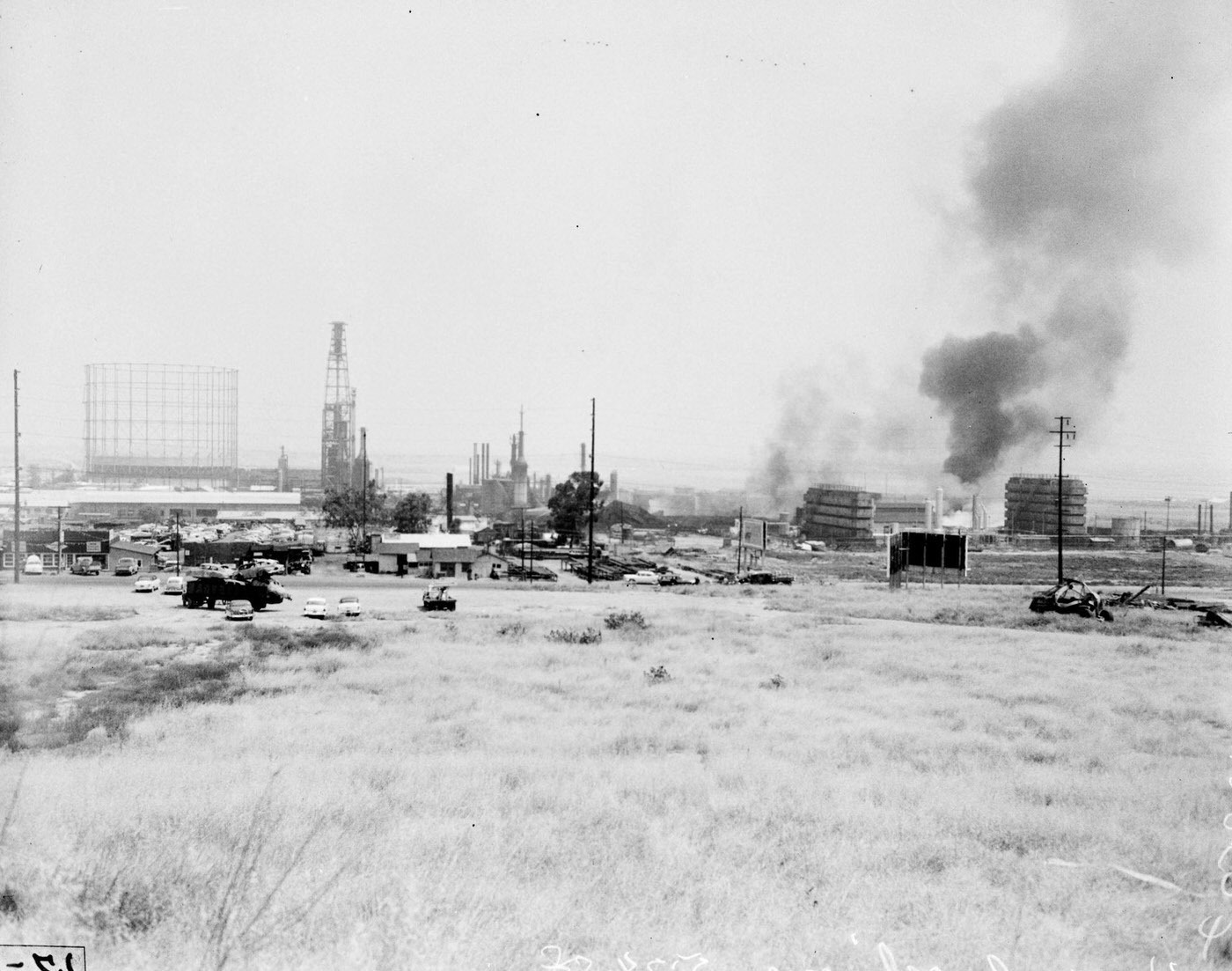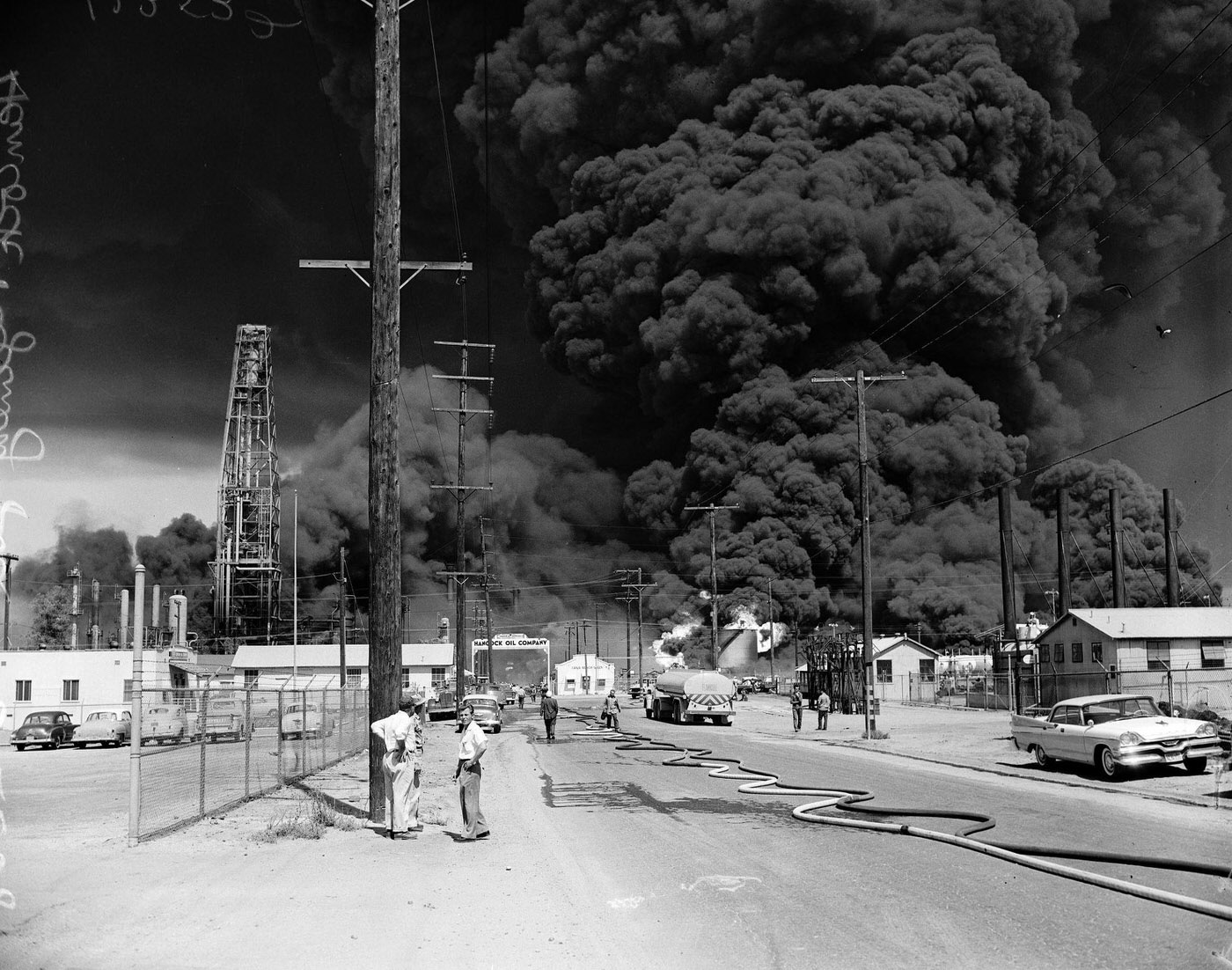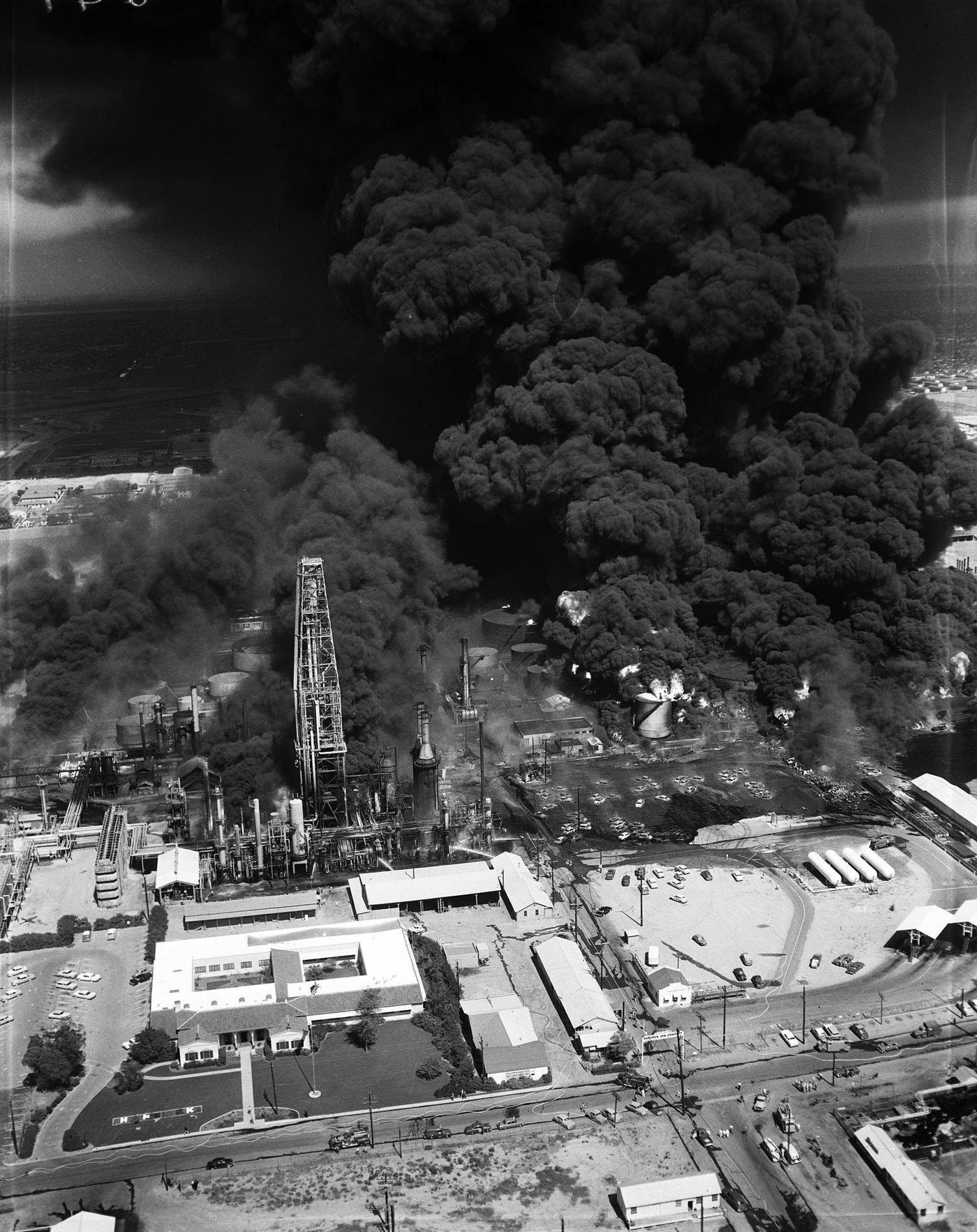On April 7, 1958, at the Hancock Oil Refinery in Signal Hill, California, the usual activities of refining and processing crude oil were abruptly interrupted by a disastrous fire. The incident began at 9:40 AM, when an explosion erupted, unleashing flames that rapidly engulfed the facility.
The thick, black smoke was visible from miles away, and the fire’s roar was deafening. Emergency services were alerted immediately, and fire departments from Long Beach, Los Angeles, and other neighboring cities responded, facing a blaze of unprecedented intensity.
The Response
Firefighters arrived on the scene to find a complex and dangerous situation. The intense heat and towering flames were fed by the refinery’s inventory of crude oil, gasoline, and other chemicals. They battled the fire using foam and water, but the flames were relentless, threatening to spread to nearby tanks and structures.
The fire teams had to contend with not only the heat and smoke but also the risk of further explosions and the complex layout of the refinery. The blaze took hours to contain, with firefighters working tirelessly to prevent it from spreading further.
The Causes
Investigations into the Hancock Oil Refinery Fire were extensive, involving multiple agencies. The root cause was identified as a failure in a pumping system, leading to a pressure buildup within one of the refinery’s key components. This pressure caused a gasket to blow, releasing a stream of flammable material that ignited upon contact with a spark.
The probe revealed that the refinery’s safety protocols were inadequate, and its design lacked sufficient preventive measures. This lack of preparation, coupled with the highly flammable materials present, created a perfect storm for disaster.
The Aftermath: Human Impact
No lives were lost in the Hancock Oil Refinery Fire, but the human toll was still considerable. Several employees and firefighters were injured, some seriously. The trauma experienced by those who witnessed and fought the blaze left lasting scars.
Families of refinery workers faced hours of uncertainty, fearing for the safety of their loved ones. The community’s trust in the industry was shaken, leading to demands for greater transparency and accountability.
The Aftermath: Environmental and Economic Impact
The environmental damage caused by the fire was severe, with large amounts of pollutants released into the air and water. The cleanup was a complex and costly endeavor, taking months to complete. The long-term consequences for the local ecosystem were felt for years, with soil and water contamination affecting plant and animal life.
Economically, the fire led to significant losses for Hancock Oil. The refinery required extensive repairs, and the legal battles that followed added to the financial burden. The local economy was also affected, with job losses and a decrease in revenue for nearby businesses.
Regulatory Changes
In response to the disaster, regulatory agencies conducted a thorough review of safety standards within the oil refining industry. Existing regulations were scrutinized, and new measures were implemented to prevent similar incidents in the future. The emphasis was placed on enhanced safety protocols, better training, and more rigorous inspections.


